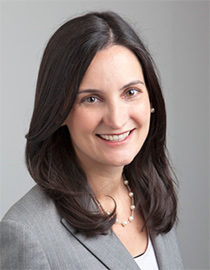Get to Knows CDT’s Fellows: Catherine Crump
 Catherine Crump is Assistant Clinical Professor and Director, Samuelson Clinic for Law, Technology & Public Policy, University of California, Berkeley, School of Law. She is also one of CDT’s non-resident Fellows, engaging with our policy teams to provide valuable insight from her research. In this Q & A we get to learn more about Catherine and her current work.
Catherine Crump is Assistant Clinical Professor and Director, Samuelson Clinic for Law, Technology & Public Policy, University of California, Berkeley, School of Law. She is also one of CDT’s non-resident Fellows, engaging with our policy teams to provide valuable insight from her research. In this Q & A we get to learn more about Catherine and her current work.
Why did you become a CDT fellow?
To engage with CDT’s terrific staff on pressing civil liberties issues, and to connect what academics learn through research to policy issues that are being decided right now
What is your current research focus?
All things government surveillance, but with a particular focus on surveillance by local law enforcement agencies, and the fallout of the Supreme Court’s decision in Carpenter that the government needs a warrant to access historical cell phone location data (well, at least 7 or more days’ worth) from mobile carriers.
What is the most pressing internet policy question of today?
Whether our movements will be as monitored by corporations and the government in our homes and in public spaces as we are online.
On what issues should policymakers seek more input from academia?
The impact of new technologies on criminal justice. Lots of technologies are being presented as brand new and also as though they’ll radically fix longstanding problems, but actually a lot less is new than you might think. Many contemporary policy debates are really variations on themes that have played out time and again.
What issues do you think more students should be studying?
I am biased, because I am a clinical professor, but I think it’s important for today’s law students to be willing to take on many modes of advocacy, depending on where a particular problem takes them. It’s not enough just to litigate, or just to lobby, or just to write policy papers. You should be willing–and excited!–to follow a hard problem wherever it takes you.
What does the future hold for the internet? Will it reach its full potential?
The key question is whether our social and political institutions are functional enough to channel and regulate the internet wisely. Right now things aren’t looking too good.
What is your favorite topic to teach?
I run a technology law and policy clinic. I get to work with students to represent clients on cutting edge technology and civil liberties issues. What could be better than that?
What advice do you have for aspiring tech & internet academics?
No advice, but welcome to a great field–it is always evolving and you’ll never be bored.
What’s a passion or hobby you have outside of tech & the internet?
All things outdoors–hiking, camping, skiing in the winter. This is what I moved back to California to do!


